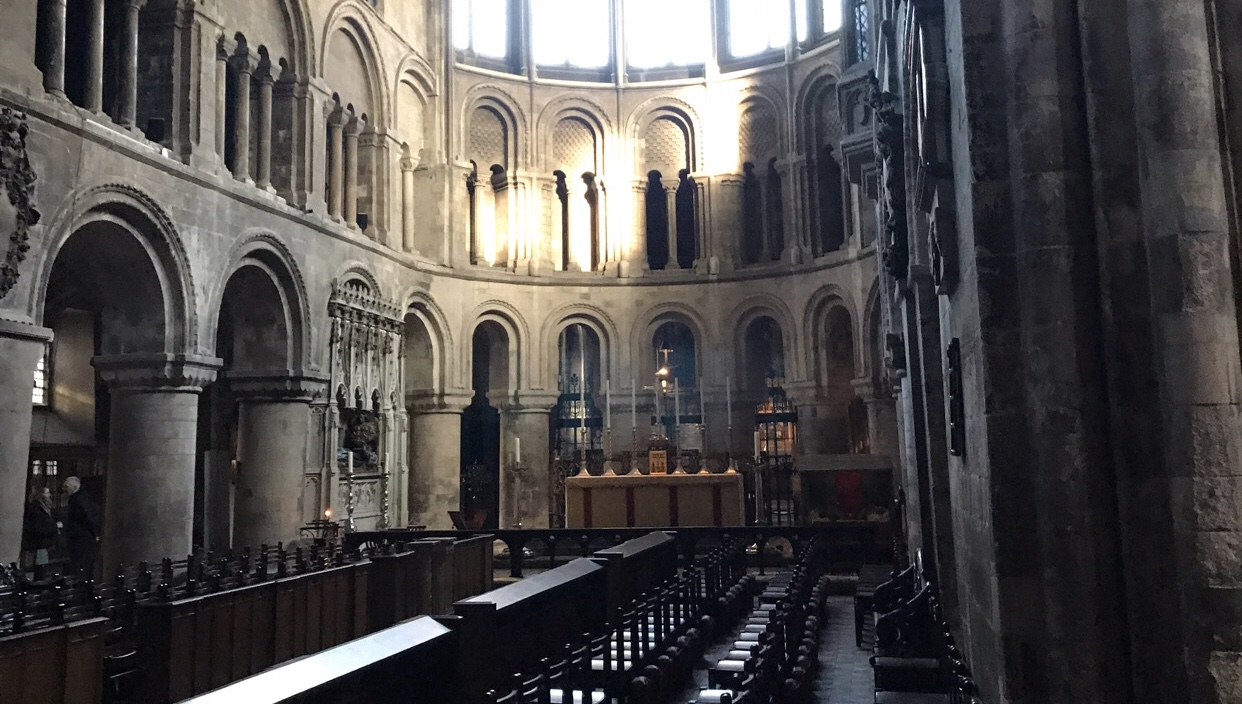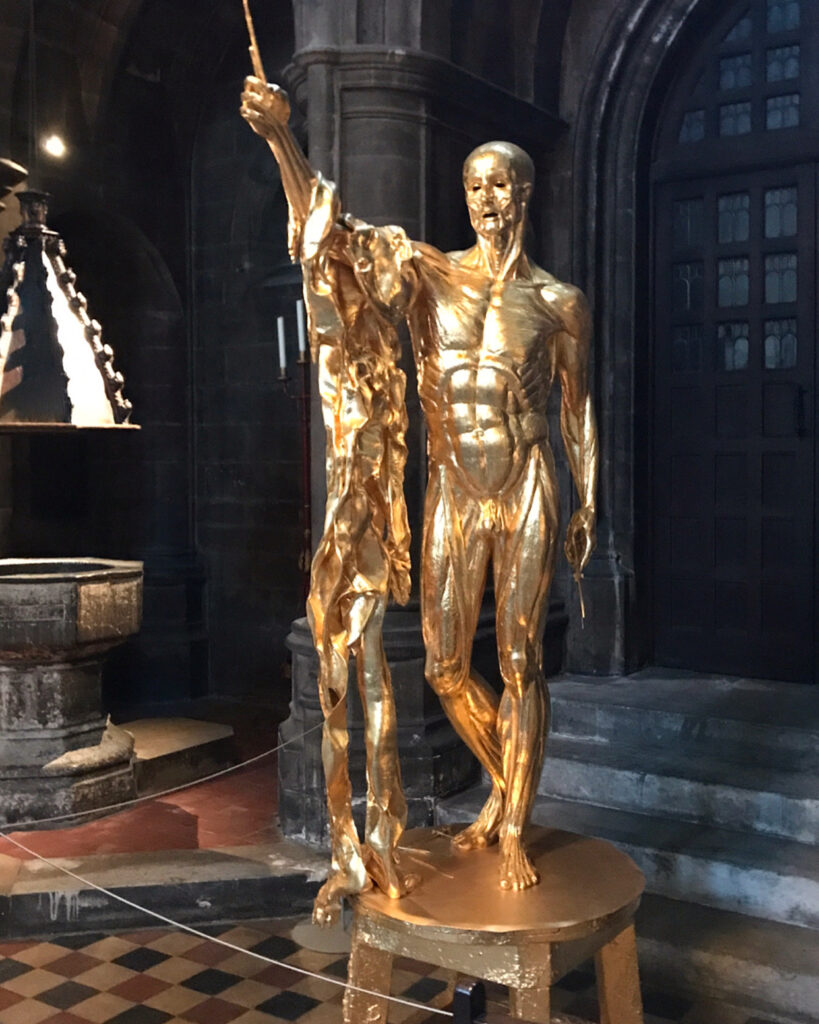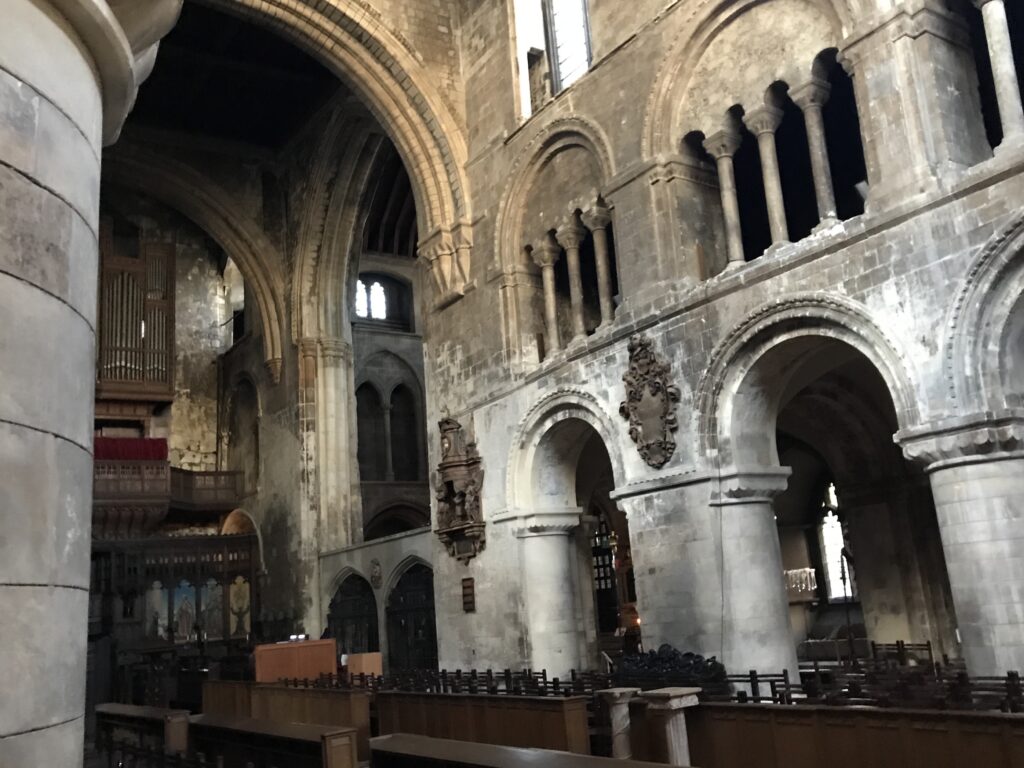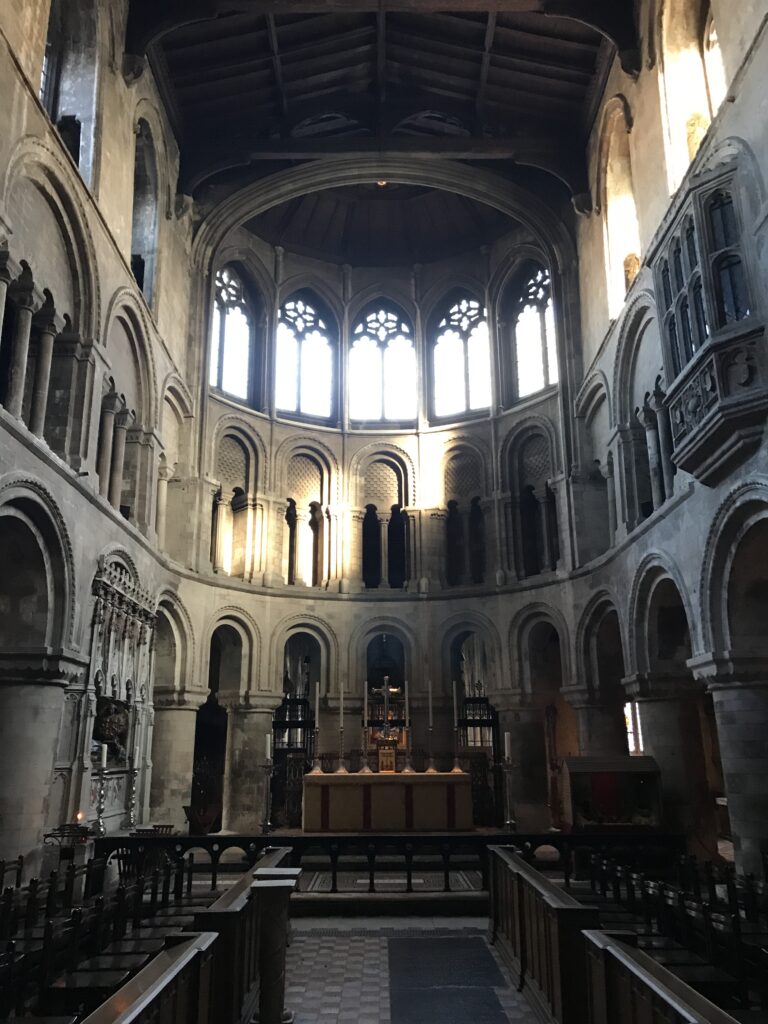
The church of St Bartholomew the Great in Smithfield is one of the jewels of London. A breathtakingly beautiful architectural gem that has occupied its site for 900 years.
It is one of the capital’s oldest parish churches, founded as it was in 1123 by Rahere, a courtier (some say the jester) to Henry I, the son of the Conqueror. Rahere had been on a pilgrimage to Rome when he fell ill, promising God that if he were spared he would build a hospital for the poor on his return to London. After his recovery he had a vision of St Bartholomew who told him the place where the church should be founded, just outside the City walls in Smithfield.
Henry I granted the land to Rahere who established a church, an Augustinian priory and the hospital (which is “Bart’s”, the oldest hospital in Britain that remains on the same spot on which it was founded).
After the dissolution of the monasteries under Henry VIII, the hospital was refounded under Henry’s patronage, but much of the church was demolished. The parish took over some of the surviving priory buildings, but these fell into disrepair in the 17th century and it was not until the latter half of the 1800s that restoration took place.
What survives, and what has been restored, predates the 1666 Great Fire (the limits of the destruction were some 100m to the south), so this a rare London example of the romanesque architectural style.
As you enter you come across a statue by Damien Hirst, who has loaned a gilded casting of his 2006 work ‘Exquisite Pain’ to the church. Bartholomew was one of the 12 apostles who, after the death of Christ, travelled to Armenia where he was martyred by being flayed alive – his skin removed from his body in one piece. In Hirst’s sculpture, Bartholomew has this skin draped over his outstretched arm, the hand of which is holding a scalpel – a nod to modern day surgery. It is an impressive work.
St Bartholomew’s has recently stopped charging an admission fee, so is free to visit, but donations are welcomed. There are also guided tours that may be booked.




